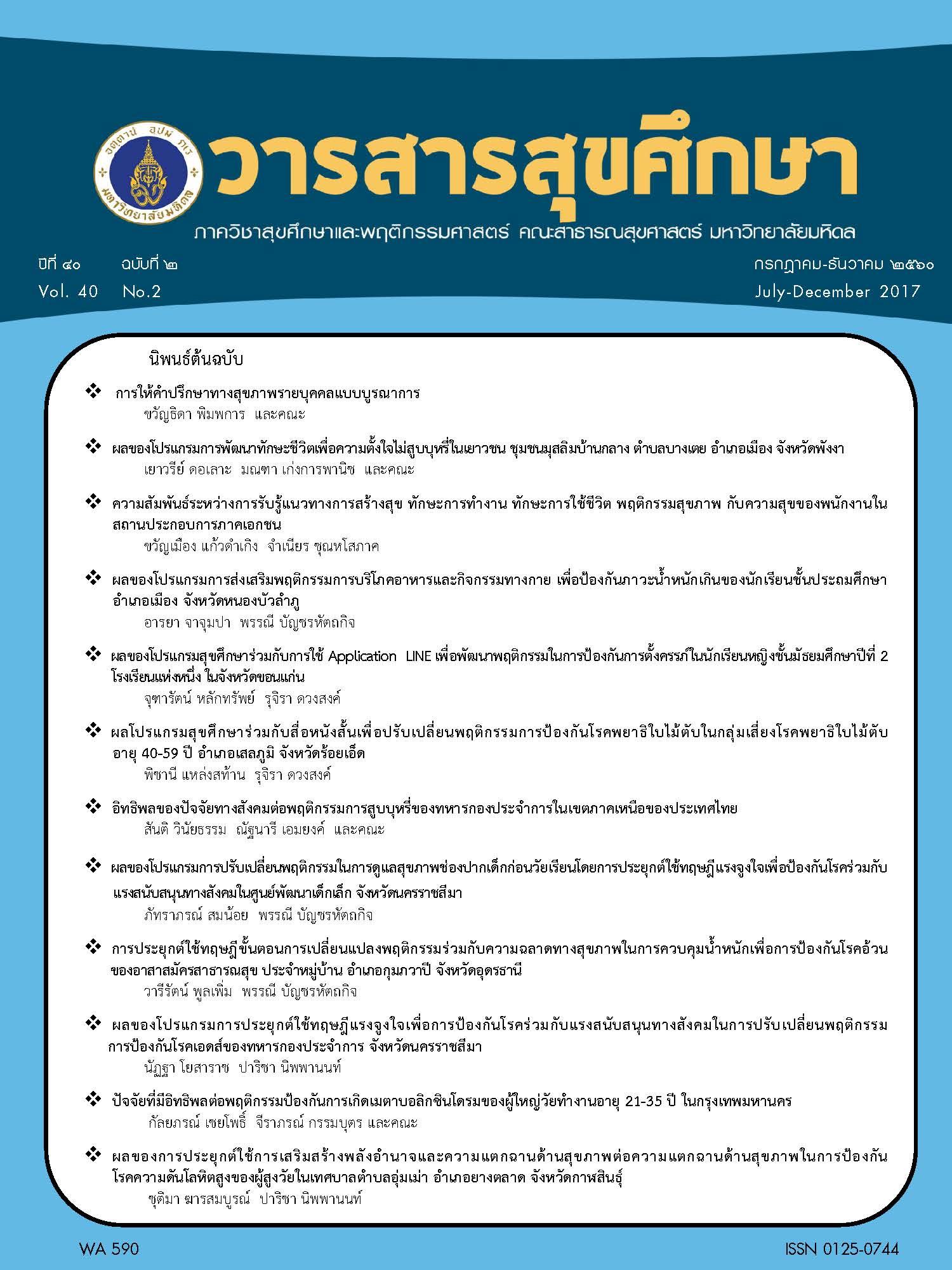The Factors Influencing Metabolic Syndrome Preventive Behaviors among Working Adults Aged 21-35 Years in Bangkok
Main Article Content
Abstract
A descriptive, correlational predictive design was aimed to study factors predicting metabolic syndrome preventive behaviors among adult workers in Bangkok. The theory of Planned Behavior (TPB) was applied as research conceptual framework. The sample consisted of 180 working adults between ages 21-35 who were selected through multistage random sampling. Data collection was done by self-administered questionnaire which were tested for content validity and reliability. The content validity index (CVI) was 0.89. Cronbach’s alpha coefficients of every section were higher than 0.7. Data analysis was done using descriptive statistics, Pearson’s product moment correlation coefficient and multiple regression analysis by enter method predicting preventive behavior.
The result showed that metabolic syndrome preventive behavior was at a high level (X= 51.9, SD = 9.6) the mean scores for the factors of intention (X= 47.1, SD = 6.5) attitudes (X=339.4, SD=41.5) and subjective norms (X=102.2, SD=13.4) were at a high level respectively. The mean score of perceived behavioral control was at moderate level (X= 49.2, SD = 7.5). In addition, it was found that attitude, subjective norm and perceived behavioral control predicted metabolic syndrome preventive behavioral intention at 48.0 percent and those preventive behavioral intentions could concurrently predicted metabolic syndrome preventive behaviors at 45.2 percent. Therefore, health personal should assess health promoting program in order to promote metabolic syndrome preventive behaviors in adult worker group.

